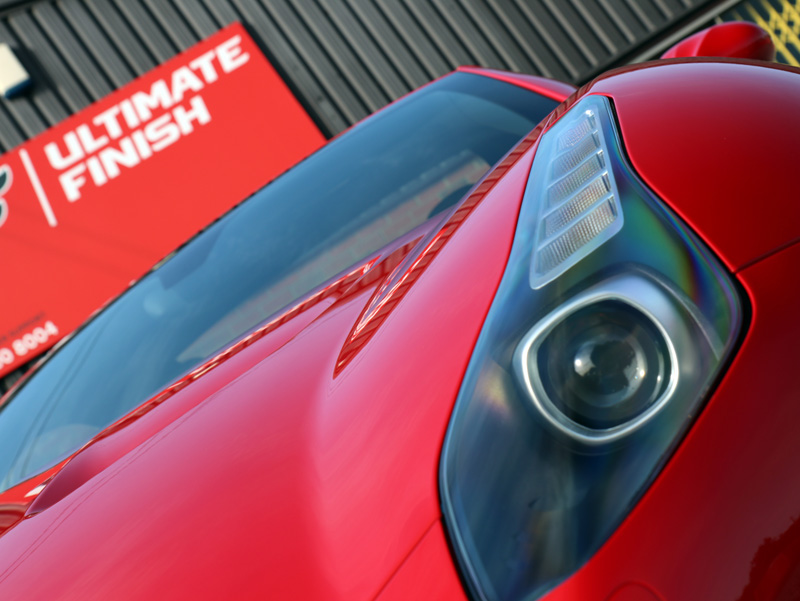Three must-knows before buying your first classic car

Three must-knows before buying your first classic car
A lifelong dream, a shiny toy or an investment ploy? This high-risk, high-reward purchase will cost you in both pounds and effort but the reward, financial or just self-satisfaction alone, is a draw card that pulls in many to the collector, classic, vintage and antique car markets.
Even for those well-versed in their vehicles, there are a few important points to consider and questions to ask before making your first purchase within this coveted industry, so here’s some expert advice from Design 911…
Know what you’re looking for
Before all else, the crucial first question you must ask yourself is what do you want to do with your
classic car?
If you’re a long-time motoring enthusiast who has always dreamt of antique ownership your considerations are going to be different to those who are looking for a long-term investment as a stunning addition to an investment portfolio.
Are you planning to drive your new car? Obviously, most vintage cars aren’t going to be an appropriate replacement for your day-to-day transport, but many still fantasise about driving down windy stretches road for hours on end. If this is you, settling for a 1980s model with effective heaters and suitable interior space may be a more fitting option than a cramped, cold, noisy and unreliable antique.
Do you have the time, passion and mechanical skills – if not, the money – to consider a full restoration project? This is a calling for some and an unrealistic undertaking for others. As you need to be realistic with your expectations of your car, too you must with yours of yourself.
Perhaps you’re looking for a unique car in immaculate condition that will be doing a lot of sitting while it can move towards its investment potential? This is never a guarantee, but you can’t deny the element of prestige a physical asset such as thing can provide to any investor.
Know where to buy it
This is not your average car purchasing process, finding the right one can take some time. The three main pathways to securing your new love are at auction, from a dealer or a private party and they all come with benefits and downfalls.
An auction is the most flashy and thrilling way to land your classic car, they often bring in high-end cars that never make it to the showroom and you could walk out with a steal if only a few others bid.
Though, the exhilaration of this environment can lead to a rash decision and little time to carry out the necessary inspections prior purchasing. Remember, at auction, it is final.
Dealers, who usually are playing middle man between you and the seller, are happy for in-depth inspections and time for outside opinions on the vehicle. They also provide the perfect arena for negotiation, feel comfortable to start off as much as 25% below the asking price. They want a deal done so while you will have to negotiate with them, they will negotiate with the seller.
Of course, with a dealer or an auctioneer involved, a commission will be added the total cost for you, this is non-existent when you are buying from a private party. Scrolling the many classic car sites can be labour intensive and a waiting game but dealing directly with the previous owner will give you an intimate history of the car and a better understanding of its past treatment. Be wary of blindly trusting all private sellers though and ensure that all claims they make about the car can be verified.
Know what (and who) to ask
It’s easy to get caught up in the excitement of having found your new baby, but it’s critical to ensure
you’ve covered all bases as hidden shortcomings could cost you thousands.
Paperwork is essential; your selection should have a complete service history logging all engineering works that dates back from as long as possible with no mysterious gaps. A well-documented car allows you to be fully aware of any issues from the past and significantly adds to the value if, and when, it comes time for you to sell.
And on the topic of the cars value, the older the car, the more reason to hire an appraiser. These are big purchases that don’t come with a set price tag and are influenced by a range of other factors: model, year, condition and rarity.
With so many all come into play and are best evaluated by a certified appraiser. This certification will also help through the incoming insurance process.
Even if you’re well-versed in classic cars, having a mechanical expert inspect the vehicle can reveal engine insights that the eye cannot see and of course, don’t forget to take it for a lengthy test drive where you can assess the noise and get a feel for how it consistently runs.
Not for the faint-hearted, this purchase is likely to take time and effort. Despite all this, taking the plunge into your first classic car remains one of the most popular personal acquisitions, don’t miss out on experiencing first hand what all the fuss is about.

.png)
.png)
.png)
.png)





